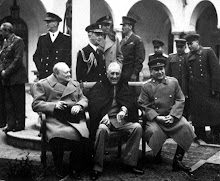OK, I admit it; I am a foreigner in London. That means I’m not used to how things are done here and should probably keep my mouth shut.
But one of the things I really enjoy in London is now in danger of disappearing. No, it’s not a pretentious pub or restaurant in the City, nor a trendy boutique somewhere near Covent Garden, nor a stall in Greenwich Market (the shiny, touristy one).
I’m talking about Streatham Ice Rink. I’ve only discovered it recently, after skating unenthusiastically on the tiny, crowded and cheekily expensive open-air rink at Somerset House, changing my mind about going on the half-flooded surface of the rink outside the Natural History Museum and staring in disbelief at the minuscule rink in Canary Wharf before deciding the "experience" was not worth the price of the ticket.
Streatham Ice Rink, at the first look, is nothing extraordinary – actually, it could not be more ordinary. But this is exactly what I like about it. It’s unassuming, simple and genuine- things that are harder and harder to find in London these days.
If you’re tired of the crowds of tourists and the well-off-looking skaters you bump into on rinks closer to the Square Mile - where, besides skating, you are invited to try an "unique experience" consisting of adjacent "activities" such as sipping various overpriced drinks or nibbling various equally overpriced exotic things - go to Streatham Ice Rink. It offers only what it promises: great skating.
The ice is incredibly good. No scratches or uneven surfaces, no water on ice, and you’re inside – so you can pass a rainy weekend skating. The staff are friendly, the skaters are nice.
Granted, it could do with a lick of paint and the toilets and the cafeteria are in need of some improvements. But these are minor inconveniences when you think that Streatham Ice Rink is 78 years old. Think about how many kids skated there who now, as adults, remember those moments as maybe some of the happiest of their lives.
I am gutted at the thought that all this will all go in a few months – weeks maybe. Tesco got permission from the Lambeth Council to redevelop the area and they say they will build a temporary rink somewhere in Brixton until they manage to replace Streatham Ice Rink within their new development – which will include a supermarket and houses.
Their new rink – when, but especially if it is finished – will perhaps be shinier, more colourful and will offer "modern facilities." But in the meantime they will demolish a London landmark and bulldoze over thousands of childhood memories – and nobody seems to give a toss.
